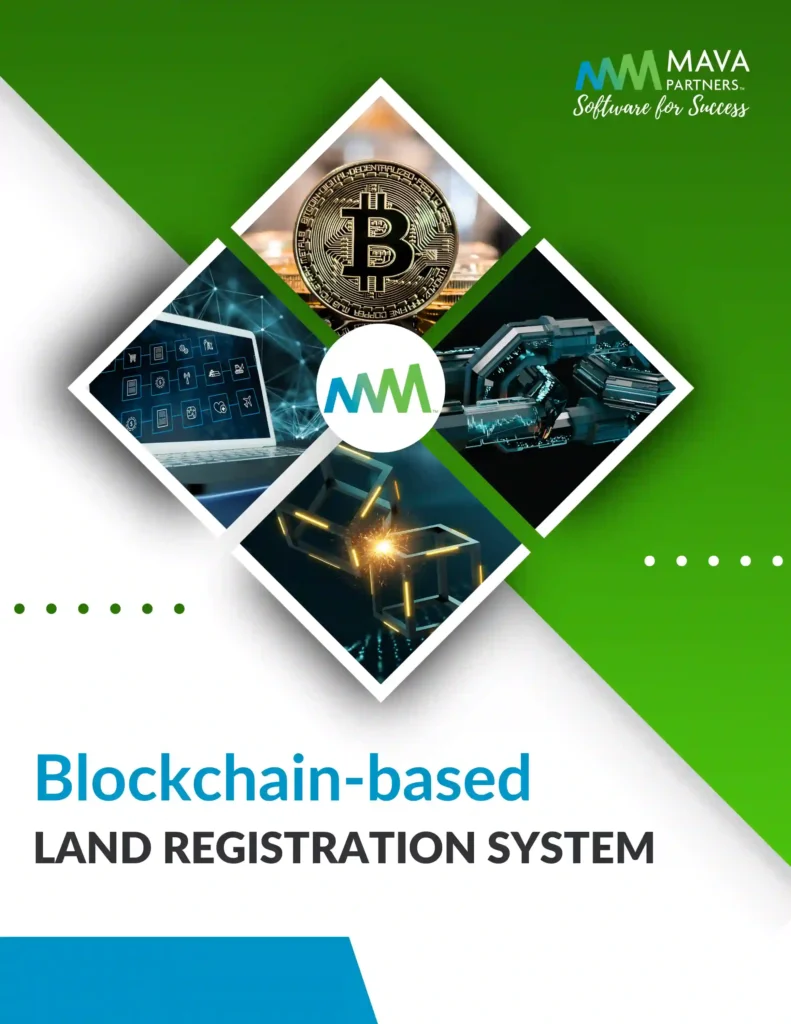Blockchain-based Land Registration System
Client Profile
The client, established by the South Asian government, focuses on maximizing land utilization for both economic growth and societal progress. It operates as the primary authority for national land registration, overseeing land transactions such as sales, leases, and allocations while also serving a regulatory function.
Category
Blockchain
Project Overview
Blockchain technology is causing significant ripples in the real estate industry due to its capacity to offer unparalleled transparency. It’s gaining traction as a tool for land registration, enabling the secure and unalterable recording and sharing of information. The unchangeable and decentralized structure of blockchain ensures that data is open for verification by any party, even those lacking trust. Smart contracts, capable of self-execution, bolster trust among involved parties, while outcomes are authenticated by all network participants. This technology has the potential to replace traditional land transaction records with a distributed ledger that utilizes cryptography and consensus mechanisms for protection.
Business Requirement
The customer considered using blockchain technology for a land registry, which promised advantages aligned with their needs. Verify the accuracy of data concerning property deals with more reliability. Offer a quicker, more secure, and cost-effective method for conducting property transactions. Safeguard records from alterations or counterfeiting within the system. Enabling accessible searches for real estate transactions could address various concerns regarding property ownership disputes.
THE MAVA PARTNERS SOLUTION
MAVA Partners dove into Ethereum blockchain development using Solidity for crafting smart contracts, ensuring official permissions from government bodies. They built a ReactJS web app integrated with a blockchain explorer for users to monitor in-app transactions. These transactions were mirrored on the public Ethereum blockchain (Etherscan), ensuring open verification. A tailored app was designed to handle customer identities, allowing interaction with the Ethereum network via emails or usernames. This app acted as a user’s wallet, enabling them to authorize blockchain transactions. The outcome? A permanent, unalterable trail of transactional data deeply linked to the system. This approach ensures nearly instantaneous tracking and openness, capturing and documenting each transaction as it progresses through the process.
Technologies
Ethereum, Spring Boot, Solidity, Web3j, MariaDB, ReactJS, HTML5, CSS3, Java, Microservices Architecture, Truffle, ActiveMQ, AWS & AWS S3
Positive Outcomes for Business
Real-time tracking of property status and sale deeds alongside comprehensive transaction records accessible at all times. The duration for processing land transactions has been halved on average. Administrative expenses have decreased by 33% due to the elimination of manual procedures. Physical archives of land records are no longer necessary. Land investments have seen a 24% uptick. Improved data security and the authenticity of land records have reinstated buyer trust in the land registry system.
Key Features
The application’s functionalities were compartmentalized using a microservices architecture, employing Spring Boot for their construction. Contracts were migrated to the Ethereum network, and their functionalities were executed using Truffle. For connecting Java-based microservices in Spring Boot with the Ethereum blockchain, Web3j API was utilized. Integration for payments and the provision to request loans from financial institutions were implemented as part of the system. To secure participant interactions, blockchain nodes were established and operated within a private consortium on Kaleido, a blockchain service provider.

